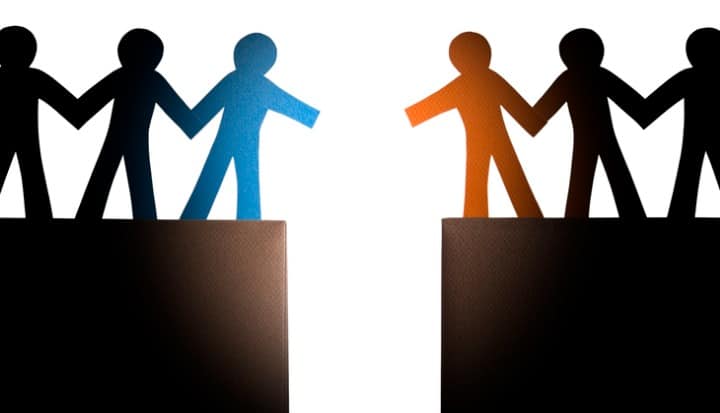On The Difference Between Us and Them as Opposed to Us vs Them
The words “us” and “them” typically are used to characterize problematic opposition. There is a good reason for that. But we all need an “us.” If you have an “us,” there is going to be a “them.” That’s not a bad thing. But when the meaning of our “us” depends on the demonizing of the “them,” then things are much different. It is possible, even healthy to have “us” and “them” your head, but in many cases, one can still have very constructive relationships with the “them” in question. Do you play in an after work softball team? Your team is an us, but I doubt you really hate the other team. The members of that team may be other colleagues at work and then, you comprise a different kind of “us.”
This video looks at these issues and also offers ways in which creating an “us” can be a good thing. Maybe it is terms of finding a common enemy – that seems very true these days – but it also looks at more constructive possibilities of “us and them” while warning of the very real dangers of “us vs them.”
[iframe width=”720″ height=”315″ src=”https://www.youtube.com/embed/afMUvneyMjw” title=”YouTube video player” frameborder=”0″ allow=”accelerometer; autoplay; clipboard-write; encrypted-media; gyroscope; picture-in-picture” allowfullscreen></iframe]
Editor’s Note:










